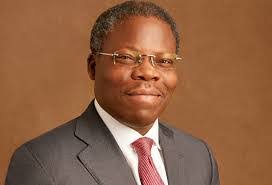The Director-General of the Bureau of Public Enterprises (BPE), Mr. Ayodeji Gbeleyi, has announced that 91 federal government-owned enterprises will be privatised or commercialised as part of ongoing reforms to attract investment, improve efficiency, and unlock growth in critical sectors of the economy.
Mr. Gbeleyi made the disclosure at a press briefing in Abuja on Tuesday, stressing that the exercise would be done in phases and handled with caution to protect the nation’s strategic interests.
“There are 91 public enterprises that are still outstanding within the purview of the Public Enterprises Act. You may want to know the estimated values and why we want to sell,” he said.
According to him, the list includes 16 firms in the oil and gas sector, covering refineries and depots, though he did not name the specific companies. He added that 12 firms fall under agriculture, 20 in aviation, while 28 others cut across different public enterprises. Additional companies are in mining and steel, transport, eco-tourism, as well as two agencies within the Federal Capital Territory Administration (FCTA).
Mr. Gbeleyi explained that 35 of the enterprises would be fully privatised, while equity in 57 others would undergo partial privatisation. However, he declined to reveal the exact names of the companies, noting that the business and legal processes guiding privatisation determine the approach for each sector.
“The Public Enterprise Act is a living document; it does not have a sunset day to say that by this date, you must finish privatising or commercialising all enterprises. Public-private partnerships and concession agreements are painstaking transactions. If you want to do it right, you must go through a rigorous process, one transaction at a time, sector by sector. That is why we rely on financial advisers, legal advisers, and technical consultants to review the realities and the business case before determining the structure,” he said.
Citing the telecommunications sector as a success story, the DG argued that reforms in that industry demonstrated how privatisation could open economic opportunities. “If we did not reform the telecoms sector and remove NITEL’s monopoly, the huge growth we see today in telecom, e-commerce, and fintech would not have been possible,” he said.
Mr. Gbeleyi also noted that despite the challenges in Nigeria’s power sector, the unbundling of the industry has prevented what could have been a nationwide blackout. He said ongoing reforms were creating jobs and enabling skills transfer among Nigerian youths.
“In the power sector alone, we are delivering 3.2 million meters and Nigerians will be the ones to install them. Another project will deliver 2.5 million meters. These create direct and indirect jobs for our people. If you look at the telecoms sector, Nigerians now compete globally with skills developed after reforms. These are the kinds of benefits we want to extend across other sectors,” he explained.
The BPE boss also disclosed that the government plans to list two electricity Distribution Companies (DisCos) and one Generation Company (GenCo) on the Nigerian Stock Exchange. He did not give their names, citing corporate confidentiality.
He assured that under his leadership, the Bureau has strengthened its compliance and legal frameworks to ensure reforms are transparent and in line with best practices. “We created a new contract management and compliance unit to review all agreements, double-check our processes, and ensure that everything we do is in line with the law. Under my watch, I can assure you that we will remain law-abiding and follow global best practices,” he said.
Mr. Gbeleyi emphasised that the ultimate goal of privatisation is not just to sell government assets, but to reform sectors, attract sustainable investment, create jobs, and strengthen the Nigerian economy.
